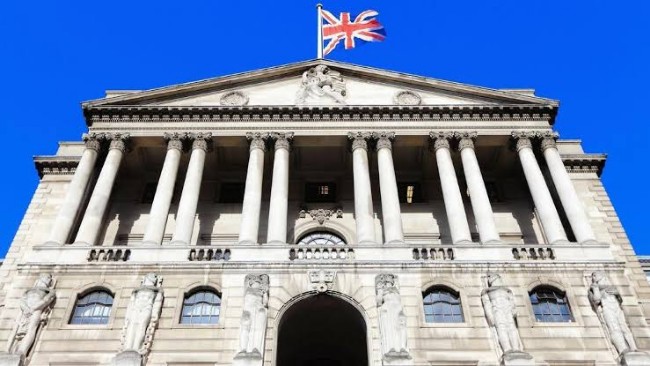Business
Like Emefiele, Bank of England plays down collapse of Silicon Valley Bank

The Bank of England has also stated that the failure of Silicon Valley Bank (SVB) in United Kingdom won’t lead to the collapse of the country’s financial system.
UK’s financial regulator made the statement on Friday, just days after the Governor of the Central Bank of Nigeria (CBN), Godwin Emefiele, assured of the stability of the financial system in Nigeria.
Emefiele, after a Monetary Policy Committee (MPC) meeting on Tuesday, said Nigeria’s financial market has zero exposure to the collapse of Silicon Valley Bank.
He said buffers have been put in place to ensure the collapse of banks in the United States and UK doesn’t spread into the country’s financial industry as the global market fears contagion.
Similarly, the Bank of England has also stated that banks are protected from experiencing the same fate, disclosing that Silicon Valley Bank subsidiary was insolvent in UK because the parent’s collapse in UK triggered fear among its customers.
“SVBUK got into difficulty because its ‘parent’ company in the United States, Silicon Valley Bank, failed. This led to a loss of confidence in SVBUK and many customers withdrew their money. Without the support of its parent bank in the US, SVBUK could not survive on its own.
“Silicon Valley Bank in the US also got into trouble because customers withdrew their deposits very rapidly. In order to pay those deposits back, the bank needed to sell assets quickly at a loss. This led to the failure of the bank and an intervention by the US authorities,” Bank of England said in the statement updated on Friday.
Read also:Emefiele denies taking part in politics, alleged plot against Tinubu
The UK financial authority further stated that: “The UK banking system remains resilient, with a strong financial position and robust regulation.
“It’s our job to make sure banks in the UK have enough financial resources kept aside, in case they ever need to use them.
“We test this by putting major UK banks under regular ‘stress tests’. These are to test that the banks are resilient to even quite extreme economic scenarios – involving things like very bad recessions and much higher interest rates.
“Even in the event that some banks do get into trouble, there are another two lines of defence. First, the Bank of England is able to provide short-term support to a bank experiencing temporary cash-flow problems.”
The Bank of England said it has a second option, which is to sell the assets of the failed bank to a much stronger private firm or public-owned organisation to ensure depositors’ funds are protected.
“This means we can manage a failing bank in an orderly way. That protects the rest of the financial system and keeps disruption to customers to a minimum. It also makes sure taxpayers’ money is not at risk,” the statement reads.
Join the conversation
Support Ripples Nigeria, hold up solutions journalism
Balanced, fearless journalism driven by data comes at huge financial costs.
As a media platform, we hold leadership accountable and will not trade the right to press freedom and free speech for a piece of cake.
If you like what we do, and are ready to uphold solutions journalism, kindly donate to the Ripples Nigeria cause.
Your support would help to ensure that citizens and institutions continue to have free access to credible and reliable information for societal development.






















